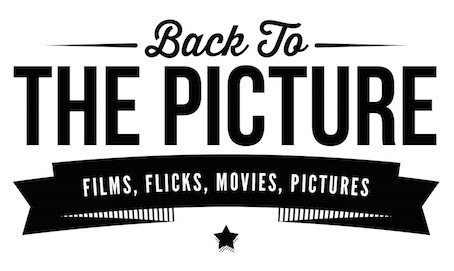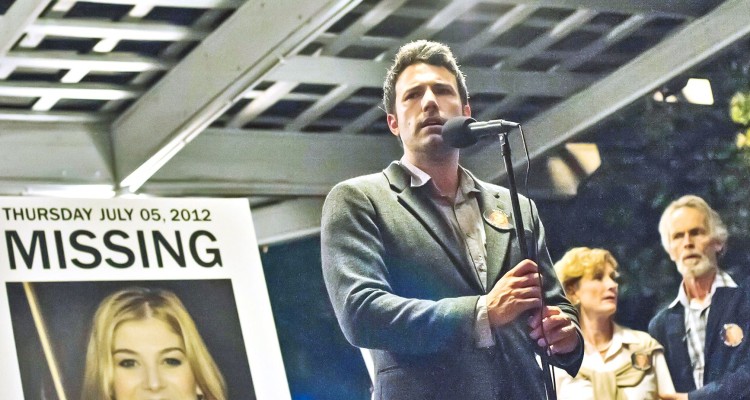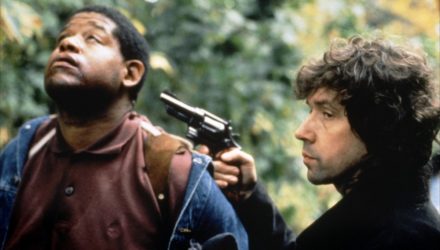I almost want to give two separate ratings for this script. One for the script I thought I was reading, and one for the script it turned out to be.
First of all, let me start by saying I have not yet seen the film. Yes, I know it came out over a year ago. Yes, I know David Fincher directed it. From what I’ve heard, it sounds like a great movie. But as far as screenplays go, I found this one lacking in believability, and the further I read, the more the world fell apart.
Let’s start with the story I thought I was reading. Nick is not a good protagonist, and I don’t mean to say that as a protagonist he is problematic. I mean that he is not a good guy. Ok, I’m interested. Amy, Nick’s wife, disappears, and a number of things point to him as the one who made it happen. He has already sown a web of lies around his relationship, so protecting his image while maintaining his innocence proves difficult. It looks like this is truly the bed Nick has made. And yet, to the reader/audience, there is enough evidence to suggest that he did not kill his wife. And he starts being treated by the media as “a guy that got away with it.” As a character, he should no doubt be punished, but only punished for the transgressions he’s committed right? Alright, this takes us to about the halfway point. I was digging this exploration.
Now we finally meet Amy, Nick’s wife. Until this point, we had only seen or heard from her through filtered flashbacks and diary entries. Now we catch up with her, almost right at the moment that she reveals to Nick she’s been setting him up. She had been meticulously planning this for months, down to every detail, to get back at him for everything he put her through. These are two people who pretended to be someone else for each other, but the discovery of who their partner truly was turned out to be too much for them to handle maturely. Ok, I’m actually still on board with this idea. In fact, I’m really interested in this idea, and a script that takes this idea to an extreme could be great. My problem lies in the choices the characters made, particularly Amy’s, as well as their execution.
Amy is shown to have played a number of men in the past, each time through deft manipulation and careful, clever planning. This story examines her biggest and most elaborate ruse, and while it was sufficiently motivated, I did not find it believable in execution. Her methods and tactics didn’t seem to make it necessary for everything to work out in her favor, and yet almost everything does. It seemed like things were working for her, when it wasn’t necessary they should’ve. I totally believe this gap can be closed by a great actress, but in the screenplay, I had great difficulty believing her meticulous planning would necessarily lead down this path. Now I don’t mind coincidence in scripts, and to be fair, it isn’t exactly coincidence that makes things work out for Amy. But in my opinion, the cops seem a little too wrapped up in the media’s image of Nick to be believable officers. Besides Nick, Amy’s force of antagonism, which could best be described as the truth, which as represented by the detective who can best be described as incapable, is toothless. I’m not completely convinced Amy had the wherewithal to pull this off.
When contrasted with the first half of the script, where I completely believe that the bed that Nick must sleep in is necessarily the bed he made by his own choices. He lied and cheated, and now he’s facing the consequences: his inability to come across as innocent.
And yet, Nick is somehow able to overcome that. By going on television and being charming I guess, but it was too easy for my taste. Just like Amy’s success depended on the allowance of those around her, so too was Nick’s. Give me some real forces of antagonism please!
Overall, I’d say this is a good script. Good description of action, good dialogue, and most of the characters are good. But the large shift in scope and believability that occurs when we finally get Amy’s side of the story makes the rest of it unbelievable, at least when compared to the hard-boiled first half of the script that seems so incredibly real and grounded. Nick could be the guy next door. Not just in how he seems, but in truth who he turns out to be. Amy could be the girl next door, but only in the way that she seems. It is easy to believe that a guy could cheat on his wife. It is less easy to believe that the wife could create such an elaborate fall plan (only to be foiled by some flat, throwaway characters that needed cash) but then still come around get the one-up on Nick.
I guess that’s what this story is asking us to think about. Do we really know who other people are? Perhaps that’s the point I’m missing about this script. Is this screenplay itself just my Amy, who I thought was one way and was actually another? I’ll have to see the movie and see if David Fincher was able to tease out these themes and ground this story, because in my opinion, the screenplay did not.
6.9
Lucky Girl
Story
5
Character
7.3
Dialogue
7.2
Imagery
8



